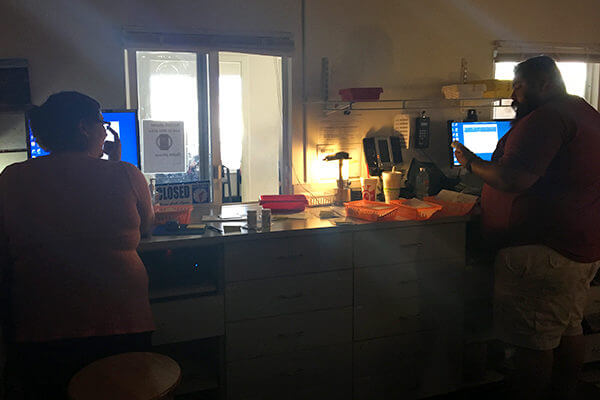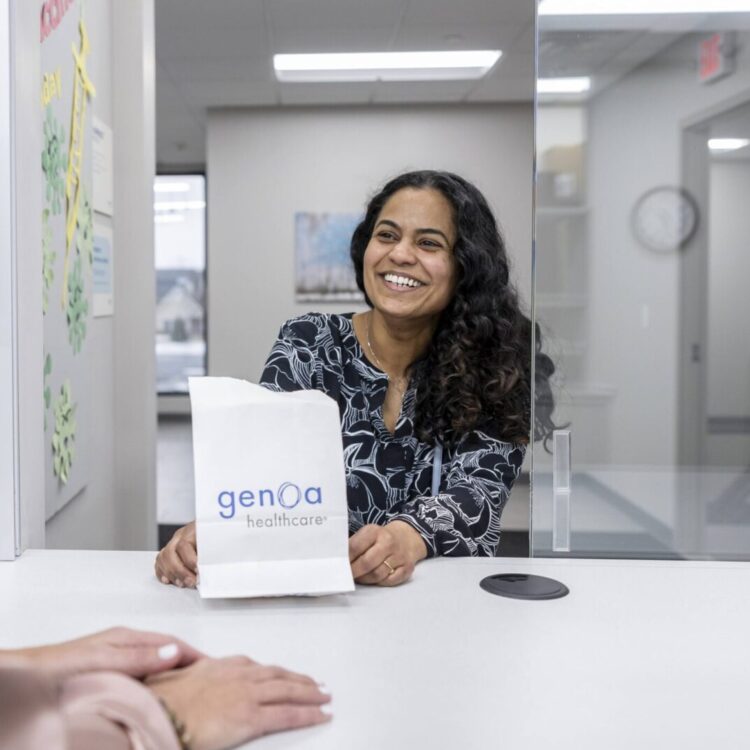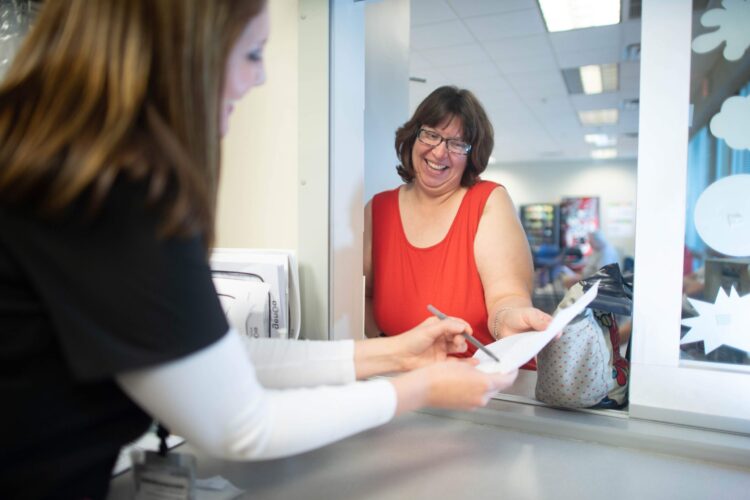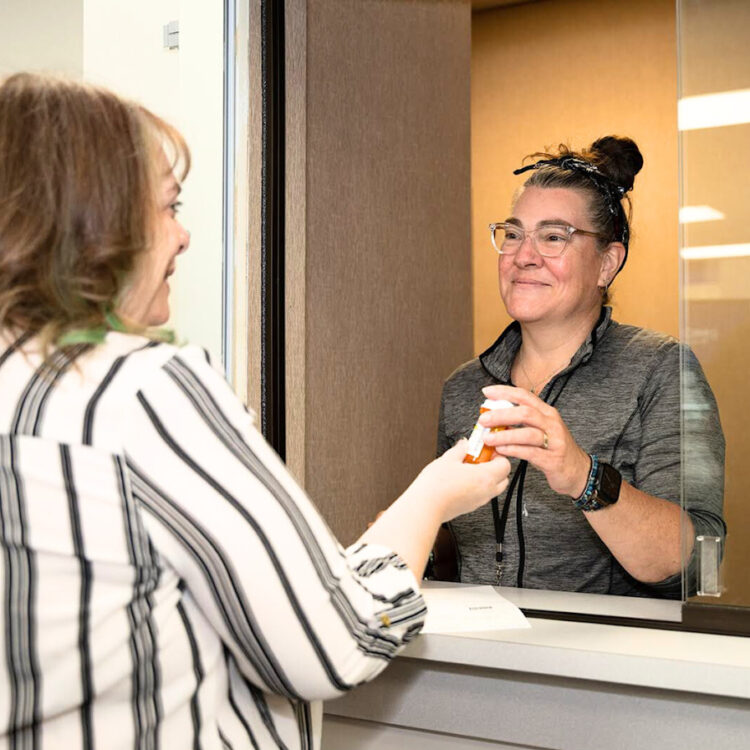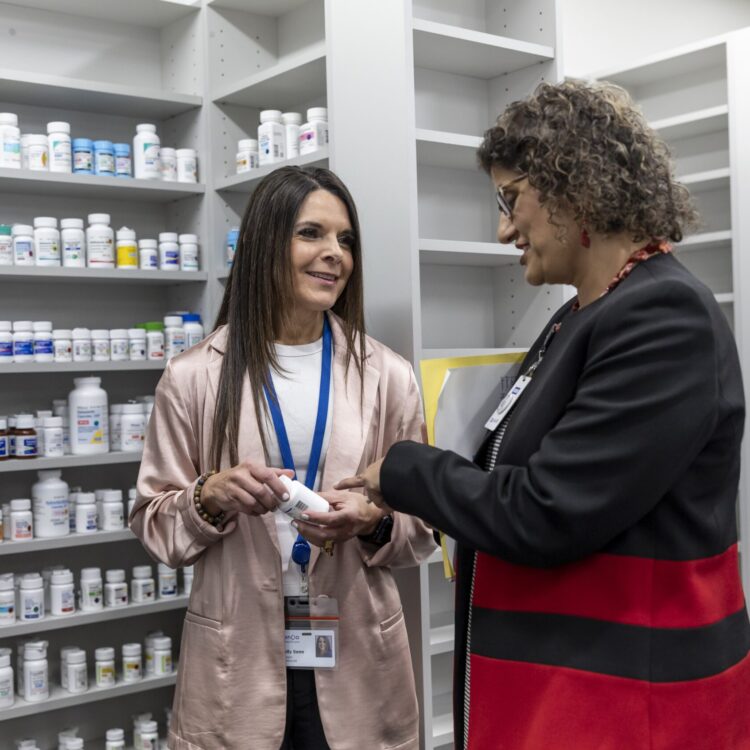Original at MinnPost: https://www.minnpost.com/mental-health-addiction/2017/10/when-natural-disaster-strikes-keeping-psychiatric-meds-available-ess
By Andy Steiner | 10/09/17
When a natural disaster strikes, the public quickly becomes aware that people with serious physical ailments like diabetes or kidney disease need access to the medications or treatments that keep them alive. But little gets reported about another urgent medical concern: People with serious mental illnesses need access to their psychiatric medications.
Last week, I talked to Mark Peterson, RPh, the Minnesota-based chief commercial officer of Genoa, a company that provides pharmacy and telepsychiatry services to clients nationwide with behavioral health and substance-use disorders. When weather forecasters predicted that hurricanes Harvey and Irma were heading in the direction of Texas and Florida, Genoa staff had their emergency-management procedures put to the test: They scrambled to make sure that all of their clients in the direct path of the storms, which included mental health clinics, group homes and other residential facilities, had access to their psychiatric medications.
The situation called for serious planning and flexibility on the part of Genoa pharmacists and other staff members.
“For a person with serious mental illness, even having a short interruption in your medication supply can be very dangerous,” Peterson told me. “For some of our clients, having access to their medications is a life-or-death situation. Our team went out of the way to make sure that they got what they needed.”
MinnPost: Why is it important to make sure that psychiatric medications are available for your clients during natural disasters?
Mark Peterson: For folks like you and me, if we know there is a storm coming or if something is going to interfere with our ability to take our medication, we’ll be prepared. We’ll have transportation. We’ll make calls. We’ll think about what we need to do to get it done. But if you are somebody with severe mental illness, your ability to even just find the transportation to leave home and get what you need might be more difficult.
We try to be proactive. If we can anticipate some kind of storm or other natural disaster, or if something is going to happen that might interfere with an individual’s ability to get their care, we are going to be as proactive as possible about it. We do everything we can to make sure our clients don’t miss a dose.
MinnPost: What kinds of preparations can you make before a natural disaster strikes?
Mark Peterson: If we know there is a hurricane coming, we might have a few days or even a week’s warning where we can prepare. We will do a review of our records to see who over the next few weeks is going to be running out of mediations and might be due for a refill. We will actually reach out to those individuals to plan where they are going to be during the incident. As long as it is safe we will get them a supply of their medications. We will try to get them stocked up for the length of the incident.
MinnPost: When your pharmacies are closed due to a natural disaster, how do you get psychiatric meds out to clients?
Mark Peterson: During the event, we continue to stay connected to our clients and their medical providers and get the medications out as our clients need them. Some of the places where we have to spend extra time and attention on are the group homes. Oftentimes a group home may only have limited supervision — maybe just one
person on staff with several clients. They don’t have the ability to pack up the group home and take everybody out to pick up just one mediation. It is important for our staff to get to the group homes where our clients are. That way clients can wait in place and make sure they get their medications from us.
MinnPost: You said that in some cases, having access to psychiatric medications can be a life-or-death situation. What mental illnesses are most dependent on regular dosing?
Mark Peterson: For some individuals, even a very brief gap in treatment can lead to re-hospitalization. At particular risk are individuals that are being treated for schizophrenia, where short gaps can lead to very rapid onset of symptoms.
Some folks with serious mental illness use long-acting injectable medications. These are growing in popularity and are very effective. The timing of when they receive that injection can be important. If we know that an individual is scheduled to have an injection, we can either work with physician to make clinical judgment about if that injection is to be administered early or later, or are we going to need to make arrangements to have those medications injected even if the clinic is closed?
MinnPost: What about individuals who can only have access to limited amounts of their medication at a time?
Mark Peterson: Then we have to take a different approach. We ask questions like, “Is there someone we can work with to make sure we can deliver small quantities of supplies?” We can make more frequent, small deliveries to wherever they are supposed to be.
Some individuals are at high risk for suicide. You would not want to give them a large quantity of certain medications. We need to work in those situations to understand where are you going to be: Are you evacuating? How can we get the medications to them?
MinnPost: Do you only provide clients with psychiatric medications? What about their other medical needs?
Mark Peterson: Like the rest of the population, people with severe mental illness may also have comorbid conditions. For instance, many individuals with schizophrenia or bipolar disorder also have something called metabolic syndrome, which is a grouping of symptoms like high blood sugar, cholesterol, and triglyceride levels. It is important for the safety of the patient that they don’t get their medication from lots of different pharmacies. We work hard to coordinate with health care providers to make sure that we fill all of our clients’ medications. Then, if we have a situation like the ones we are talking about, we can manage all of our clients’ medication and make sure that they have everything they need.
MinnPost: What were some of the unusual steps your employees took to keep prescriptions filled during Harvey and Irma?
Mark Peterson: We had pharmacy staff driving to meet other pharmacy staff in areas that weren’t affected to pick up additional medications. We had one site manager in Texas drive two hours one way to reach the pharmacy when the roads were flooded just to make sure clients got their medications. Because our system is connected to the internet, we had some of our site managers bring in hotspots to connect with wireless routers. They also relied on battery-powered lights and worked in the dark. We used generators to keep refrigerators running for certain prescriptions.
These steps worked. We had no reports of individuals that we take care of not getting the medications they needed.
MinnPost: Hurricanes can be predicted days or weeks ahead of time. What steps do you take when unexpected disasters strike?
Mark Peterson: Sometimes these storms come up and they can’t be predicted. In Minnesota, we might have a blizzard that’s poorly announced and not very predictable. In those situations, there are a group of folks who understand that timing is very important. Their concern would be for the folks who need their medications regardless of whether or not there is a blizzard. Our staff will reach out to those individuals and make sure they have an adequate supply.
MinnPost: What if a client needs a medication prescribed but their psychiatrist can’t come into the office?
Mark Peterson: During the recent hurricanes we knew that many of the folks we take care of were going to be in shelters. It’s important for psychiatrists to be able to access their clients. Because of that, we made our telepsychiatry team available to help provide psychiatric care to consumers that were in the shelters and not able to get to their regular appointments.
When you are in the midst of a natural disaster, mental health-care needs do not go away. If anything, situations like these only compound the problems of stress and anxiety. The ability to provide psychiatry services remotely could be an advantage, almost something essential, in times of severe crisis. Unfortunately, it’s starting to look it seems like events like these are only going to get more common. We need to plan ahead so we can be there when people need us.

